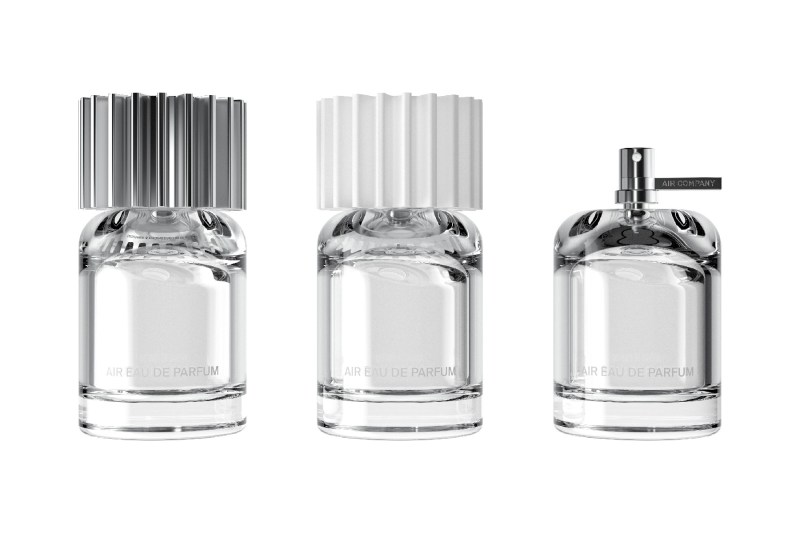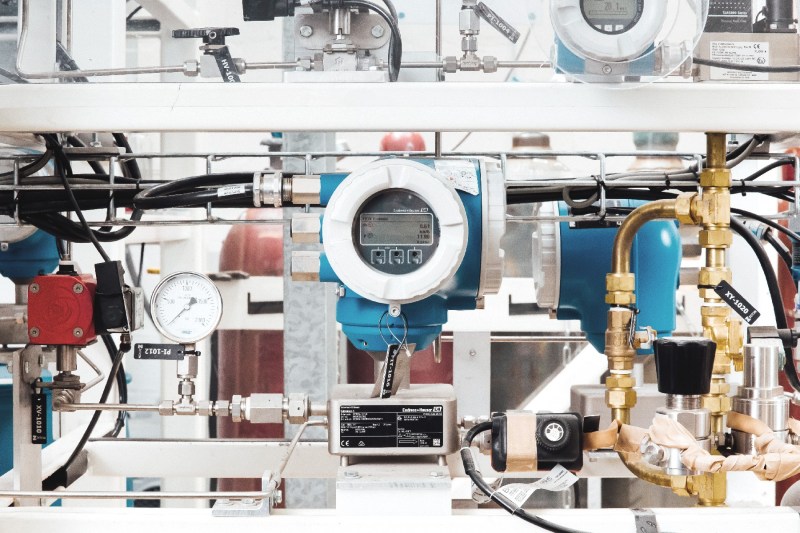As world leaders, politicians, and activists drive a global push for net-zero emissions by 2050, the rest of us try our best to make the most sustainable choices in our daily lives to do our part. While considering the livelihood of future generations isn’t always the easiest choice (and never the cheapest), it helps us sleep better at night knowing we’re making an effort.
Even if net-zero by 2050 might not seem like the most realistic goal, sometimes innovators in the commercial space rejuvenate our spirits, keeping us on track by creating sustainable technology. Speaking of spirits, Air Company is a brand doing just that.
Founded by entrepreneur Gregory Constantine and Dr. Stafford Sheehan, Air Company makes vodka, perfume, and hand sanitizer from CO2 pulled from the air we breathe. That means Air Company’s products aren’t just carbon-neutral, they’re carbon-negative. Here’s a brief rundown if you’re unfamiliar with the terms carbon neutral or carbon negative.

What is Carbon Neutral?
A company or brand is considered carbon neutral when it offsets the amount of carbon it emits annually. Most companies purchase carbon offset credits, which reduce carbon emissions in other ways, such as planting trees or building windmills. However, buying carbon offsets is not actually cutting the carbon emitted in a company’s manufacturing process. Genuinely sustainable companies understand that they have to do more.
A truly sustainable brand tries to invest in and implement sustainable processes wherever possible. For example, Anchor Brewing teamed up with Cambrian to implement a wastewater treatment within its brewery, saving millions of gallons of water annually and destressing municipal water processing, further reducing CO2 emissions.
What is Carbon Negative?
You’ve probably gathered that a company claiming to be carbon negative must offset more carbon than it emits. But, there are no companies (that we could find anyway) that can make the carbon negative claim without buying carbon offsets, except one. You guessed it, Air Company.
How Air Company is Carbon Negative
The simple answer is a boatload of science. To dive deeper, Air Company uses a proprietary technology called a Carbon Conversion Reactor to convert captured carbon dioxide into alcohols and ethanol to create its products. Its only inputs are air (CO2), water, and sun (renewable energy), with oxygen and water as the only byproducts. You can think of it as mimicking photosynthesis, but in a more efficient manner.
The carbon dioxide is captured by Air Company partners in the Northeast that retain it before being emitted into the atmosphere. That is then fed into the reactor alongside green hydrogen that it creates on-site in its lab in Brooklyn. Both of those inputs meet its catalyst (the Carbon Conversion Reactor), and a reaction occurs that makes our alcohol mixture. The mixture is then distilled to separate out the ethanol used to create its products. This system is patented and proprietary and is the foundation for all products in its current and future pipeline.
Currently, Air Company produces deliciously pure vodka, a gender-neutral fragrance, and gentle yet effective hand sanitizer. The entire capture, purification, compression, and transportation of the CO2 used to create these products emits around 0.1 kg of CO2 per 1 kg of CO2 that comes through our door. That means Air Company’s CO2 is 90% carbon-negative when it arrives. Its hydrogen and conversion processes are run on renewable energy, allowing for an overall net negative process.

Air Company’s Contribution to a Net-Zero Future
The technology Air Company developed has tremendous potential to significantly reduce global carbon emissions and help the world reach its net-zero goal. While currently, the scale of its product offerings is small, it has just begun work in a much larger lab in Brooklyn with a beefed-up Carbon Conversion Reactor that can produce 10 times the amount of the first model. With this lab up and running, Air Company can meet much greater demand and offset much more carbon emissions.
But, this is just the tip of the iceberg. If you visit the Air Company website, you’ll see that Air Company’s proprietary technology has the potential for commercial applications such as sugar and jet/rocket fuel. While Constantine can’t go into the details just yet, the company plans to announce its expansion into various additional categories this year.
Partnering with leaders in other industries is crucial for Air Company technology to reach its full potential. The company is currently supported by NASA in its efforts to convert CO2 into glucose and proteins. Air Company can work with its peers in the carbon technology space to further develop technology together with this continued support. As Air Company expands, you can expect to see more partnerships with companies having the same vision of extending humanity.
“If our tech is applied across all possible verticals, we have the potential to mitigate 10.8% of global carbon dioxide emissions. That’s more than 4.6 billion tons of carbon dioxide annually, a sizable impact toward fighting climate change and a challenge we are working toward.” Gregory Constantine, Co-Founder of Air Company
Consumer Support is Critical
While you might not be a fan of vodka and have enough hand sanitizer stockpiled to last through the decade, you should still keep an eye on Air Company if sustainability matters to you. What we decide to buy with our hard-earned money has a more significant impact on the future than most other things we can do in our daily lives. Supporting companies like Air Company is critical to try and ensure our grandkids and great-grandkids have a better life than what scientists are currently predicting.
So, if you’re a vodka lover, stock up. If you like smelling nice, what’s better than spritzing yourself with reclaimed CO2? And let’s be honest, you can never have enough hand sanitizer.




